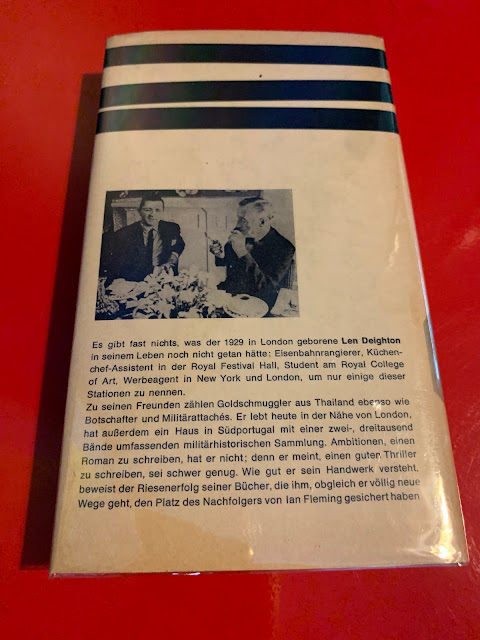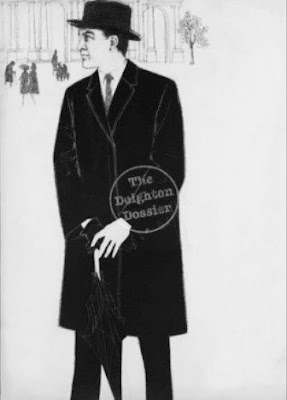Food is to be savoured, tasted, smelled, talked over.
But, in the right hands, food writing can certainly be entertaining and offer up new insights into something we all do, and enjoy.
Len Deighton - primary subject of this blog and website - as well as being a spy fiction author and historian is, famously, a long-standing writer on the epicurian arts.
A pioneer, indeed, in some respects - his 'cookstrips' were regarded as something of a revolution in the somewhat staid world of food writing in the 'sixties, but seemed to set the tone for the decade and, with the Action Cook Book, it's often said that he helped give men permission to enter the kitchen, and have fun.
In this new book I've just found - file it under books I didn't know were out there, but when I found out about it, I felt compelled to collected - there's a short but fun contribution from the author recounting his experiences with food, from cooking with his mother (who was herself a domestic cook), to eating in Paris' finest restaurants when he hit the big time as an author.
The book is a first edition of Great Dishes from the British Gastronomic Academy, edited by Allan Hall and with a foreword by the famous food critic Egon Ronay, published in the UK in 1988.
As chronicled on this blog, over half a lifetime of collecting Mr Deighton's books, I've got copies of all of his food-related books - the famous, and the more obscure.
This book came out of left-field - as ephemera and rare books by authors often do, from time to time - and I snapped it up for a very reasonable price (courtesy of the ever reliable Adrian Harrington Rare Books). Since purchasing it, I have seen that a paperback edition seems subsequently to have been produced.
For a 120 page book, there are only three pages of contributions by Deighton. Two pages - with a charming duck illustration - and a recipe for pressed duck, with attendant wine notes.
The autobiographical details shared in this book don't add a lot more granularity to tales that the author has recounted in his other cookbooks, or in magazine and news articles, but they are nonetheless interesting and well written.
He writes about being a teenager in Paris after the War and staying in a garret room at the top of a very small hotel near the station, his base from which to discover the city's food.
"Now I was in Paris", he writes, "I knew I had to go to the most famous restaurant in the world: La Tour d'Argent. (I don't know Paris' restaurants, but it sounds suitably grand for the 'sixties!). There, he ordered pressed duck, and was greeted by a sad look from the waiter.
He writes: "He whispered, as if saving me from the humiliating consequences of my ignorance, that the pressed duck I wanted was only served to two people. To cut the duck in half for one person was not possible... I understood. I was devastated but decided that desperate situations call for desperate measures. 'I'll have two portions', I said".
And, he did, and the author goes on to recount his tale of that first dish in Paris, which arguably influenced his later passion for French Food, which he then wrote about in numerous successful cookbook. And, he writes in the book, he still has the numbered card given by the restaurant to patrons who eat this magnificent dish.
For readers who wanted to recreate that dish, like other contributors to the book Deighton enlisted the help of young London chef Prue Leith (now of Bakeoff fame, of course) to share the full recipe ingredients and cooking instructions.
A great little find and, like some of my best finds as a book collector, a smashing surprise which I shall shelve with great pleasure alongside my other Deighton cookbooks.


























